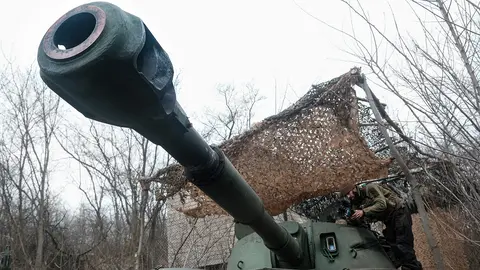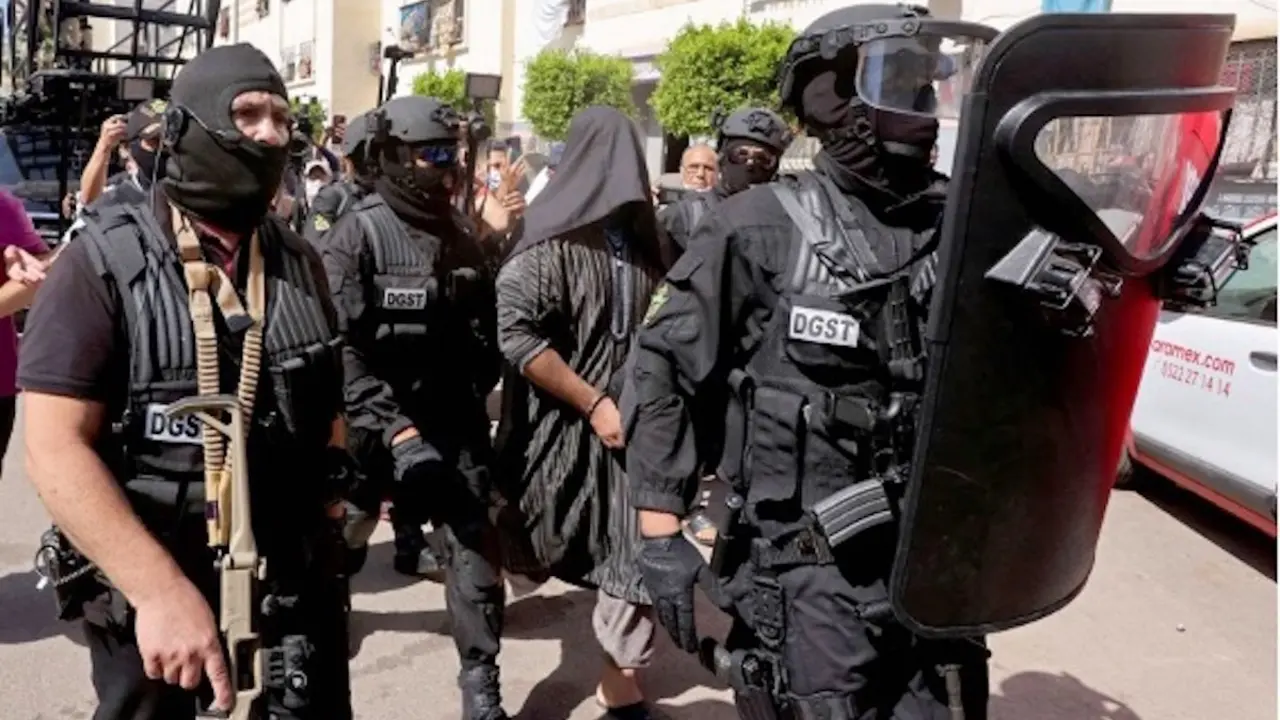María Senovilla: "The Prigozhin rebellion has accelerated Ukraine's counteroffensive"

María Senovilla, journalist and contributor to the magazine Atalayar and other media, spoke on the programme "De cara al mundo" on Onda Madrid about the current situation of the war in Ukraine and explained the tragic attack on a restaurant in Kramatorsk, frequented by foreign journalists covering the Russian invasion of Ukrainian territory.
You were not there that day in that restaurant in Kramatorsk frequented by foreign journalists.
I wasn't in that restaurant because I was not in the city of Kramatorsk, but, as you say, it was the restaurant of reference for all the international press, also for volunteers working for NGOs from different parts of the world and it was a place where we also met with translators, with press officers. This does not mean that it was a military place because, just to give you an idea, of the 12 fatalities, four were minors, which indicates that it was also a place frequented by families, by children.
It should be noted that the curfew in Kramatorsk is much stricter than in other cities. After 7 p.m. it is very difficult to find a restaurant or a café where you can get something to eat open. There are two or three places and this one, the RIA, was the biggest. Besides being the official meeting point for all the international press, it was also frequented by Kramatorsk civilians of all kinds who also dine like normal people.
How many times have you been to that restaurant in Kramatorsk?
Countless, I have been living for three months in Kramatorsk about 350 metres from the restaurant. My flat was 350 metres from that restaurant. You can imagine. We went there for lunch, we went there for dinner, we went there for coffee, we went there when there was a meeting with a press office, we used to meet there too. It's the perks of the job, you have to take care of yourself.
María, how is the counter-offensive going? You wanted to comment on the details of whether it is going well, whether it is going badly, whether Wagner has affected, has not affected, has benefited... How are you analysing the counteroffensive? What data do you have with your contacts?
The counteroffensive is going slower than desirable. For me there has been a turning point following the uprising in rebellion of Prigozhin, of the leader of the Wagner mercenaries, because that same day the accelerator was stepped on. It's quite clear that both Ukrainian intelligence and international intelligence supporting Kiev had evidence that this Prigozhin rebellion was going to happen. I imagine that they were simply pinpointing the moment and proof of that is that hours before Prigozhin launched those videos in which he declared that he was going to start a march for justice and that he was going to rise up against the Russian Ministry of Defence, Ukrainian troops began a series of offensive operations on all the important fronts, both in the east and in the south, such as Zaporiyia. This means that they had information and from that day onwards, from last Friday, they stepped on the accelerator in this counter-offensive and, for that reason, throughout this week we have received news of some progress on the front line. Even so, it is going much slower if we compare it, for example, with the autumn counteroffensive that took place last year, where in 15 days they liberated half of the territory that was occupied in Kharkiv and in the following 15 days they finished liberating the Oblast. So here we are talking about advances of perhaps a kilometre a day.
They are pushing hard on the Bakhmut front, among other reasons, because behind Bakhmut it seems that the Russians don't have such fortified defences and if they managed to get through that position they could break the Russian ranks a little bit. Progress is also being made in Zaporiyia; there is a big push to try to open an exit route to the Sea of Azov and thus break the corridor between the Dombas and Crimea.
And it was also said earlier this week that the Ukrainians could be on the verge of controlling one of the three bridges linking the two banks of the Dnieper River in Kherson province. So yes, these are developments. Ukraine is indeed taking the initiative, it has been stepping on the gas for a week now, but even so the counter-offensive is going much slower than desirable, much slower than it did in the autumn of last year, and this is a problem because the attrition and the number of casualties in the Ukrainian ranks are very high.

What impact, if any, has Maria had in Ukraine, the place where you are, on what Josep Borrell said, that a weak Putin is even more dangerous?
This was already anticipated in Ukraine as early as Friday. Throughout the day on Saturday, with Prigozhin's attempted coup d'état at its peak, I contacted several officers who are now on the front line and they all agreed on the same thing, that they didn't trust him, that they trusted him even less at this very moment. First of all because Prigozhin has accustomed us to these stagings, to these theatrics that he usually puts on, insulting the Russian Defence Minister, Soighu. So it was not very clear how far this rebellion was going to go and then, on the other hand, they said that, at such a delicate moment, with this counter-offensive that has not yet got off the ground, we should not trust anything and we had to concentrate on working, they said, with our own hands on the counter-offensive.
In other words, they don't want to trust that Prigozhin's rebellion might or might not destabilise the Russian ranks and they want to rely solely on what they have at their disposal, on their strategy, their troops, their weapons, without depending on whether or not the Prigozhin effect affects the Russian ranks.
Zelensky is receiving international support, the only thing is that this would then have to be accompanied by the weapons they need to be able to fight and for the counter-offensive to be a success.
Indeed, what Zelensky is emphasising now is that those F-16s, that air force, should be sent to him in order to turn this counteroffensive around. But the visits of international leaders, such as that of former US Vice-President Mike Pence and Spanish President Pedro Sánchez, also in his capacity as President of the European Union, are an endorsement, a public show, a show of support that at a time like this is very good for the gallery, for any diplomatic meeting that may take place.
We continue to show a united Europe that supports Kiev and also the whole of the United States, the whole of the part that depends on NATO, on the West, from where more armaments, millions and millions in armaments are being sent. I believe that in some way this also renews the spirits of those troops that are on the front lines right now, with tremendous wear and tear.

It has to give hope and it has to give them the strength to carry on, right?
It is supposed to, without a doubt.









